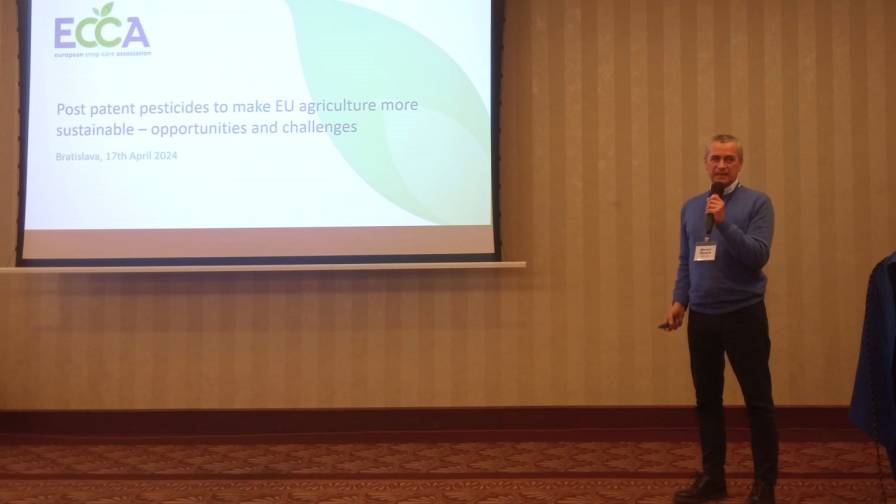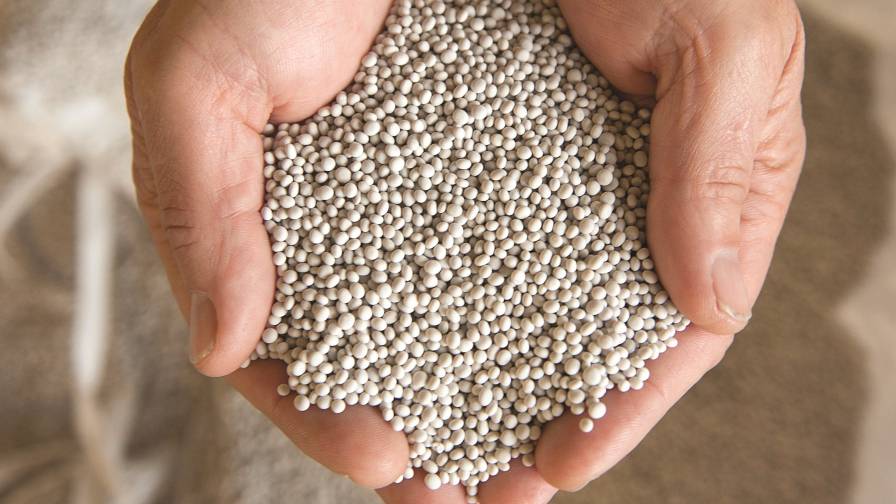Mexico Court Upholds Presidential Decree to Ban Glyphosate, GMOs
The fight over glyphosate isn’t over, but the momentum in Mexico has shifted to the government’s position that the country will phase out glyphosate and its companion seed technology by 2024.
In 2019, Mexico’s regulatory authorities began to reject glyphosate imports through an administrative mechanism known as an import license. The import license is typically a clerical procedure filed at the port of entry, but President Andres Manuel Lopez Obrador (AMLO), elected in December 2018, has used the mechanism to halt the importation of glyphosate and its precursors for formulation, effectually circumventing the regulatory approval process and banning a legally registered and regulated product.
Then in December, AMLO issued a decree that stated Mexico would phase out the use of glyphosate and GMOs in Mexico by 2024, spurring a flurry of legal activity from the industry and from trade policy observers in the U.S. and Canada, who say the new policy will force Mexico to renege on trade commitments.
In late May, a Mexican federal judge ruled against a request by the National Farm Council to freeze the government plan to ban GMO corn and glyphosate by 2024. The ruling allows the executive decree plans to continue amid warnings from the National Farm Council that if the bans go into effect, food prices will increase and farmers will be less productive.
Since the court order, there are some reports that indicate Mexico is using the same import license mechanism to deny the importation of GMO corn ahead of any formal phasing out timeline. ALMO has said this decree will only affect food for human consumption, and feed corn will not be affected.
Although China garners the majority of trade headlines, Mexico is the largest importer of GMO corn from the U.S.
Although glyphosate is the beginning, many in Mexico fear it won’t be the end as AMLO’s administration increasingly eyes a longer list of AIs that are banned in other countries, notably those in the EU, for additional scrutiny.
In this interview recorded on March 30, CropLife Mexico President Cristian Garcia de Paz discusses how Mexico’s politics are interfering with traditional agriculture production systems. Here is the full transcript:
David Frabotta, ABG: I’m here with Cristian Garcia de Paz, President of CropLife Mexico, and he’s here to talk a little bit about the glyphosate situation. Christian thanks for joining us.
Cristian Garcia de Paz, CropLife Mexico: Thank you, David it’s a pleasure for me to be here with you.
Frabotta: We’re coming off a year in Mexico in which imports to glyphosate were restricted through an admitted administrative mechanism of an import license to circumvent the legal registration: Can you tell me is that still happening and what’s the supply look like in Mexico’s value chain?
Garcia: Thank you, David, Yes, it’s still happening in Mexico, and we have no response from the authority since 2020. We don’t have any answers to our written requests from companies to import glyphosate.
This is affecting our value chain and the production of food in Mexico. We are facing problems with the farmers but not as much as expected because of some of the circumstances in Mexico. For example, this past year we’ve had less rain than expected, so we don’t have as much need to control weeds, which reduces the demand for glyphosate. That has given us the opportunity to keep some glyphosate, and our company and the farmers still have some supply they can use in the first half of the year. But perhaps by June, we will have a severe lack of glyphosate in the Mexican market.
Frabotta: That’s concerning, especially since on in December, there was a decree that stated in addition to glyphosate, there would be a permanent phase out of biotech crops that are dependent on that chemistry. It’s concerning for trade with Mexico as well as its farmers. Can you talk about that decision and whether it’s affecting farmers’ ability to produce food?
Garcia: Yes, we have several problems with this decree. It came to life Dec. 31, New Year’s Eve, without notice or prevention from the authority. It came into our homes as we were ready for our New Year’s dining with our families, and it’s a decision that we have a lot of concern in all of the agri-food industries, not just the farmers and our industry of developers of biotechnology because this decree will affect the entire value chain in Mexico.
We expect this will create a very serious problem for food [security] in Mexico because it affects not only glyphosate and GMO corn in Mexico: It’s an idea that seems to be important as the only objective for our government to talk about agro-ecology. Agriculture without chemicals and technology and going back to traditional hand-labor and natural inputs will generate problems in food production for the 120 million people in Mexico.
This could be the beginning of more bans of other molecules and other crops. For GMO corn in Mexico, we produce only half of what we consume, and we think the next step is the soybean, which is an important input for the agro-food industry in Mexico, and we have other grains that come from GMO crop, then we have a severe risk.
Glyphosate is used in more than 100 crops in Mexico, including corn, soybean, avocado, tomato, and more important crops not only for our agro-food industries, it’s important for our exports to other countries. Then we have two problems: A lack of food in Mexico, and the diminishing of our quality of food exported to the world.
Frabotta: And there is some concern that the inability to import foods that are grown either on biotech or with glyphosate in the production system, you could emasculate your feed imports and perhaps force Mexico to use its white corn grown for human consumption for feed, then creating food security question.
Garcia: Exactly. That idea came to mind with a clear example. In Mexico you spend about $1 or less to buy 1 kilogram of tortilla, which is a basic food in Mexico that every family in the country eats. If this advances, then we will have serious issue because if it becomes $5, then 98% of the families here can’t afford it. This is a serious issue for our food [security]. And there will be a similar effect on animal proteins.
Frabotta: I understand that farmers are lobbying the government, and the US and Canada are lobbying for some changes to this policy through USMCA, the new trade policy for North America. Can you tell me whether or not emergency use or special use exemptions for the use of glyphosate will be necessary to get more glyphosate into the country?
Garcia: I don’t think we can talk about that yet because this ban on glyphosate is not a done deal. This will be a done deal when the courts say it is. I know now that several farmer and producer organizations are using legal resources to fight this decree because this decree affects food producers so much. We might not have an answer by June. But maybe by August or September, we might have something definitive from the courts.
The environmental, agriculture, and health ministries are discussing what the impacts will be and how they can avoid these impacts or solve the problems generated by this decree.
Frabotta: Are there alternate chemistries that farmers can use?
Garcia: Of course there are alternatives, but it’s important to say that glyphosate represents the best option for farmers for price, efficiency, availability, and many others. Farmers prefer glyphosate as a first option.
Frabotta: Is there concern that the black market will fill the void?
Garcia: Yes, the black market is very big in Mexico. The black market represents at least 20% of the [pesticide] market in Mexico. There is a lot of risk. We have contraband from Central America and Mexico, and we have falsification or pirate products in Mexico. We, like industry, are very careful about this illegal market, and we are taking actions against the illegal market because the authorities need to be aware of it. If we have at least 20% illegals now, we could see as much as half as counterfeit as a result of these prohibitions.






